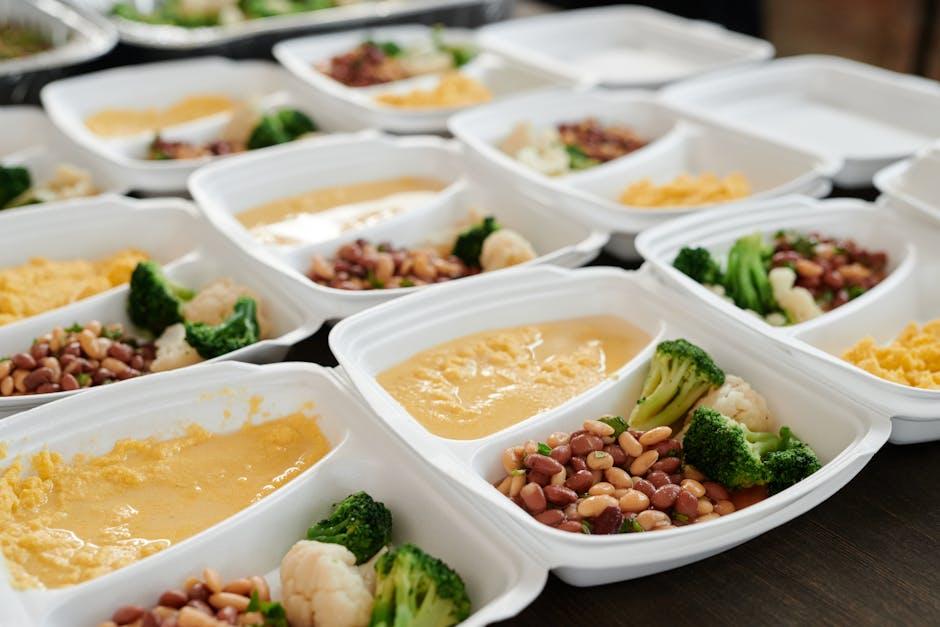Building muscle is not solely the result of hours spent lifting weights; it’s a comprehensive process that intertwines disciplined training with strategic nutrition. Understanding how to use diet to support your muscle-building routine is crucial for optimizing your results and achieving your fitness goals. In this article, we will delve into the essential dietary components that fuel muscle growth, enhance recovery, and maximize your efforts in the gym. With a confident grasp on how nutrition impacts your body, you can tailor your eating habits to effectively complement your workout regimen, paving the way for sustainable muscle development and improved overall health. Prepare to transform your approach to fitness by integrating these nutritional insights into your daily routine.
Fuel Your Workouts with the Right Macronutrients
To maximize your muscle-building efforts, it’s crucial to balance your intake of the three primary macronutrients: proteins, carbohydrates, and fats. Each plays a distinct role in your fitness journey. Here’s how you can strategically incorporate them into your diet:
- Proteins: The building blocks of muscle, proteins should be a staple in your diet. Aim for lean sources such as chicken, fish, tofu, and legumes. These provide essential amino acids necessary for muscle repair and growth.
- Carbohydrates: Don’t shy away from carbs. They’re your body’s primary energy source. Opt for complex carbohydrates like whole grains, sweet potatoes, and quinoa to sustain your energy levels during intense workouts.
- Fats: Healthy fats are vital for hormone production, including testosterone, which supports muscle growth. Incorporate sources like avocados, nuts, and olive oil into your meals to maintain a balanced diet.
By carefully adjusting the proportions of these macronutrients based on your workout intensity and personal goals, you can effectively fuel your body for optimal performance and muscle development.

Optimize Protein Intake for Maximum Muscle Growth
Incorporating the right amount of protein into your diet is essential for muscle growth and repair. To maximize your gains, consider the following strategies:
- Prioritize Protein Timing: Consume protein-rich meals throughout the day, particularly around your workout sessions. Aim to ingest a high-quality protein source within 30 minutes post-exercise to enhance muscle recovery and growth.
- Choose High-Quality Sources: Opt for complete proteins that provide all essential amino acids. These include lean meats like chicken and turkey, fish such as salmon and tuna, dairy products, eggs, and plant-based options like quinoa and tofu.
- Calculate Your Protein Needs: A general guideline is to consume between 1.6 to 2.2 grams of protein per kilogram of body weight per day. Adjust based on your activity level, age, and specific fitness goals.
By paying attention to both the quality and timing of your protein intake, you can effectively support muscle hypertrophy and ensure that your diet complements your training regimen.

Harness the Power of Timing: When to Eat for Best Results
Understanding the optimal timing for meals can significantly enhance your muscle-building efforts. The strategic intake of nutrients at specific times of the day helps in maximizing muscle protein synthesis, improving recovery, and boosting overall performance. Here are some key timeframes to consider:
- Pre-Workout: Consuming a balanced meal containing carbohydrates and protein about 1-3 hours before exercising can fuel your workout and preserve muscle glycogen. Aim for complex carbs like oatmeal or whole-grain bread paired with a lean protein source such as chicken or Greek yogurt.
- Post-Workout: The post-exercise window, often referred to as the “anabolic window,” is crucial for muscle recovery. Consuming a meal or shake rich in protein and fast-digesting carbs within 30-60 minutes post-workout helps replenish glycogen stores and repair muscle tissues. Think of options like a protein shake with a banana or a turkey sandwich on whole-grain bread.
- Before Bed: Eating a slow-digesting protein like casein before bed can help support muscle repair and growth overnight. Consider a serving of cottage cheese or a casein protein shake to keep your muscles nourished while you sleep.
Timing your meals around these pivotal moments can ensure your body has the necessary nutrients to support muscle growth and recovery efficiently. Remember, consistency is key, so plan your meals and snacks to align with your workout schedule for the best results.

Strategize Your Caloric Surplus for Sustainable Gains
When aiming for muscle growth, it’s crucial to consume more calories than your body burns, but this doesn’t mean indiscriminately eating everything in sight. A strategic approach to a caloric surplus ensures that the extra calories contribute to muscle gain rather than unwanted fat. Start by determining your maintenance calorie level, then gradually increase your intake by 200-500 calories per day. This controlled surplus allows your body to build muscle efficiently while minimizing fat accumulation.
To make the most of your caloric surplus, focus on nutrient-dense foods that provide essential vitamins and minerals. Incorporate the following into your daily meals:
- Lean proteins such as chicken, fish, and plant-based options to support muscle repair and growth.
- Complex carbohydrates like sweet potatoes, brown rice, and oats to fuel your workouts and recovery.
- Healthy fats including avocados, nuts, and olive oil to maintain hormonal balance and energy levels.
- Fiber-rich vegetables to aid digestion and provide necessary micronutrients.
By strategically planning your caloric intake, you can maximize your muscle-building efforts while maintaining overall health and well-being.




